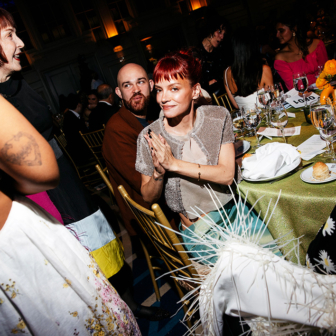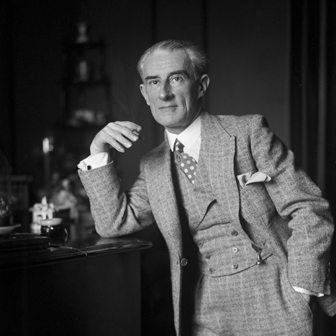Why shouldn’t a new album from the Rolling Stones be good?
Giuseppe Verdi was nearly eighty when he presented his final and, for many, greatest opera, Falstaff, in 1893. But Falstaff, his only comic opera, had a quality of lateness about it and lacked the dramatic urgency of Nabucco and Rigoletto. In contrast, Hackney Diamonds, from the venerable trio that is the remains of the Rolling Stones, is as full of youthful swagger as almost anything the band has done. For the record, Mick Jagger is eighty, Keith Richards will be eighty next month, and Ron Wood is seventy-six.
This album is many things: a reaffirmation, a summing up and a celebration — Mick, Keith and Ron sound as though they’re having a whale of a time. If it sounds formulaic, well the Stones always were. If the production tries a little too hard, wouldn’t you?
The lyrics are mostly workaday, but no one ever bought a Stones record for the words. Half the time it was impossible to make them out. When, two years ago, the band announced they were no longer going to perform “Brown Sugar,” one of their biggest hits and the song always guaranteed to bring a flagging party to its feet, I had to look up the words to discover why. Among my childhood mondegreens, now clarified fifty years on, had been the line, “Hear him with the women just around midnight.” As probably everyone except me knew, it was “whip the women” and the “him” referred to a slave trader.
“Brown Sugar” was the opening track on Sticky Fingers, and Stones albums have generally begun with similarly danceable numbers, often heralded by a few syncopated chords from Richards’s guitar. Hackney Diamonds is no exception, though what’s most striking about “Angry” is Jagger’s self-mocking vocals — on this song he seems to have become a Jagger impersonator, all leers and pouts.
Among the standouts from the twelve new tracks are two slow songs. “Depending on You” has a strong melody — good tunes are a feature of the album — and a stronger lyric. It’s a heartbreak song, with a chorus that includes the line “I’m too young for dying and too old to lose.” There are lots of “depend/depending on you” songs out there, but they’re all present tense; this one is past: “I was depending on you.” An old man’s lyric, you might say, which, from these Peter Pans, is refreshing.
The other slow song is, believe it or not, a slow-burning prayer. “Sweet Sounds of Heaven” features two of the album’s guest artists, Stevie Wonder on piano and Lady Gaga getting her Merry Clayton on. Clayton, you may recall, provided the searing soul embellishments to “Gimme Shelter,” but truly Lady Gaga outdoes her.
Other guest artists include the ubiquitous Paul McCartney, who provides a strong, fuzzy bass solo on “Bite My Head Off”; Elton John, whose piano playing features on two of the tracks; and, remarkably, Charlie Watts, who had recorded the drum parts to two songs before his death and is joined on one of them by the eighty-seven-year-old Bill Wyman, emerging from retirement to play bass on his first Stones album since Steel Wheels thirty-four years ago. For three minutes and 52 seconds, the gang’s all here.
It is something of a Stones tradition for Keith Richards to take lead vocals on one song, and here it’s “Tell Me Straight,” another slow, heartbreak song that’s perhaps Richards’s best since the magnificent “Thru and Thru” (on Voodoo Lounge). It also showcases the album’s best guitar playing.
So what is this? A Rolling Stones renaissance? You wouldn’t bet on it or even necessarily wish it, though Jagger has denied that Hackney Diamonds will be their final album. But if this is it, it seems like a suitable valediction, not only because the album is generally so strong, but also because of how it ends.
Hackney Diamonds’s final track is the song that gave the band its name, Muddy Waters’s “Rolling Stone,” touchingly performed by just Mick and Keith, the last two originals. There’s a distinctly lo-fi, homemade quality to the sound — they might be in one of their bedrooms — and it would seem a good place to stop. It is, after all, where they started. •




